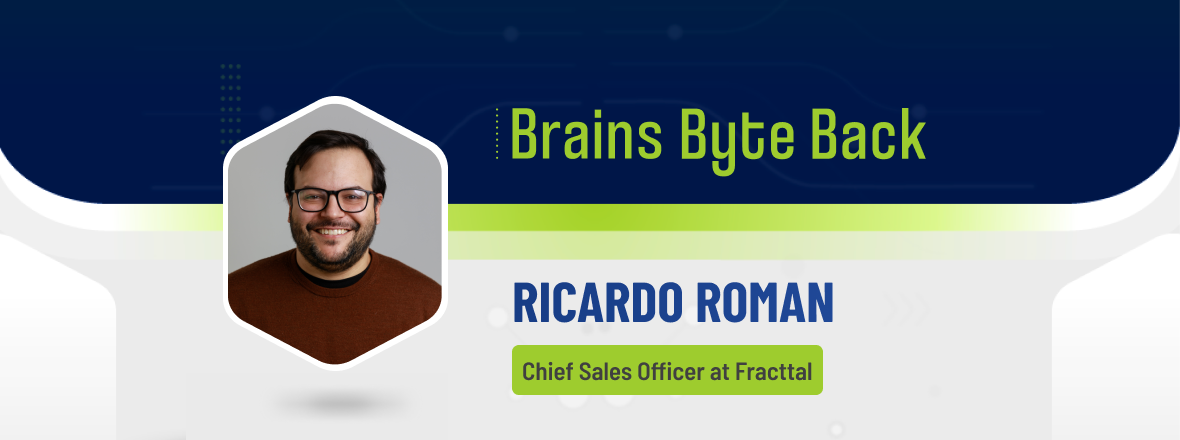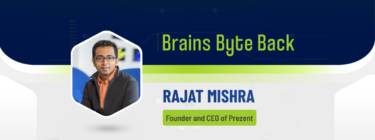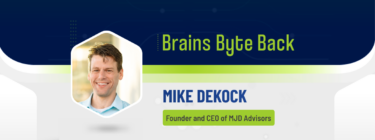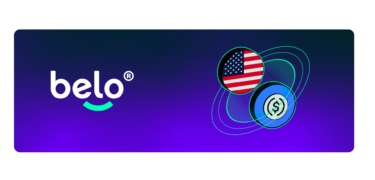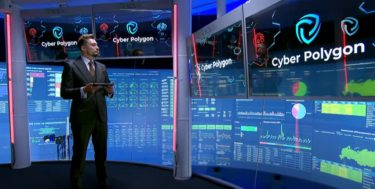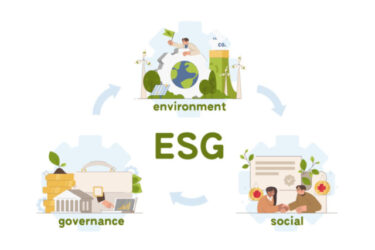In this episode, we sit down with Ricardo Ramon, Chief Sales Officer at Fracttal, an innovative maintenance solution platform that aims to transform the asset maintenance industry.
We start the podcast with Rircardo sharing his journey after leaving Venezuela and pursuing opportunities in various roles. In 2016, through a chance encounter in Santiago, Chile, he met Chris and Alejandro, the founders of Fracttal. Ricardo connected with their vision for the company and joined their commercial team shortly after. He now leads the sales department from their headquarters in Madrid, Spain.
Ricardo describes how Fracttal is a computerized maintenance management system that was first developed for smaller and medium-sized companies looking for a centralized way to track maintenance. Their team saw an opportunity after recognizing that CMM systems weren’t made readily available to businesses across Latin America that could benefit from this software. They sought to make it affordable and accessible to companies of all sizes—a mission they still uphold today.
He shares that this approach, along with their drive to continuously upgrade the technology, gives them a unique advantage in an industry with many players. They’ve since grown to have a presence in 35 different countries across the globe, which Ricardo says has happened organically thanks to their sales team, network and larger accounts.
Ricardo discusses how different AI models are being integrated into the software to provide solutions to common maintenance problems. For example, a spare part can have various names according to the language of the region. However, large language models help individuals with offices in multiple regions quickly identify the item through the system. He also shares how AI in the maintenance world is more about showing its benefits than merely discussing it.
He goes on to explain how maintenance is closely tied to sustainability. Proper planning of equipment and assets can extend a product’s lifespan by 50%, reduce the need for new machinery, and minimize the travel footprint. Ricardo also emphasizes that cybersecurity is a top priority for the team at Fracttal, especially in Latin America, where there continues to be some hesitation in terms of modernizing maintenance through digitalization.
We end the podcast by discussing the company’s future, which is focused on continuously upgrading its technology to better serve its customers and the planet. Including why Ricardo believes AI will change how companies communicate and interact with data and machines.
You can listen to the episode below, or on Spotify, Anchor, Apple Podcasts, Breake, Google Podcasts, Stitcher, Overcast, Listen Notes, PodBean, and Radio Public.
Alternatively, you can find the transcript below:
Ricardo Ramon: I’m Ricardo Roman. I work for Fracttal, a technology company specialized in applying technology to maintenance management—the maintenance of physical assets in several industries. My role in the company is chief sales officer. I oversee the sales team across five offices and am responsible for the revenue, budget, and P&L lines in the company planning.
Erick Espinosa: Fantastic, Ricardo. Thank you for joining us on this episode of Brains Byte Back. You’re currently speaking to us from Spain, but from what I see, your career experience and growth have taken you to different parts of the world. Now you’re in Madrid in your current role as chief revenue officer of Fracttal. Can you talk to us a little bit about your journey up until now?
Ricard Ramon: Yeah, I am originally from Venezuela. I started working for a multinational company as a maintenance engineer. And after a while, well, you know, the situation is that I have to look for new horizons. And I landed a job for a Toronto company. It was a very small company. It was like three or four salespeople that entered the company. We were selling products across Latin America, but the headquarters was in Toronto. So it allowed me to understand or get those first steps into the sales environment.
Then, after a while, my family and I moved to Chile. To Santiago. Over there, I met Chris and Alejandro, our founders. And I entered the office and felt like, oh, my God, I met Wozniak and Jobs in the garage. It was an amazing feeling because I was trying to sell them something I was selling at the time. But the conversation really, really quickly veered off to talk about maintenance because that was my passion. I understand perfectly what they were trying to do and their proposition. And I said I can help these guys so much. I returned home and am talking to my wife about it. We were discussing it because, you know, when you arrive in a country as an immigrant, you usually have all sorts of odd jobs. For me, it was assembling electric bikes and then installing security cameras in a warehouse. Then, I landed a job as a salesman and worked for a company that sold technology hardware specifically.
But with Fracttal, it was like love at first sight. And I told my wife, that this is what I want to do. I wanted to take the risk. At first, she said, “Come on, it’s your fourth job in three months. You change a lot”. But then she said, “You know what, go for it”. And I wrote Chris, and they said, “We need somebody, some talent in the commercial team. Come over”. Well, I started selling almost from day one, and here I am. After a few years of doing this, you know, with the same passion. The same bright eyes after the first day. I had to come to Madrid because we had moved headquarters from Santiago to Spain. Looking to open new markets and new opportunities for the company, I came here first. I’ve been with Fracttal since 2016.
Erick Espinosa: You can hear the passion in your voice when you speak about it, too. I love it. Can you also give us some insight into exactly what Fracttal is? And how did the idea for the company come about?
Ricardo Ramon: Yeah, of course. Well, we are focused, like I said, on technology applied to maintenance management. And that starts with software, a piece of software called a CMMS. It’s a computerized maintenance management system. This category has been around for almost 30 years now. There are several global and some big companies that are doing this. But what we saw at first is that for small and medium-sized companies, this was almost nonexistent.
Especially in Latin America, all these companies rely heavily on maintenance or service companies, for example, didn’t have any tools for utilization. And especially if we were talking about in 2016, something with a cloud, something with a mobile app that was non-existent. We saw a niche. We went for it. Applying technology to these companies and trying to digitalize them. We started with them. Then, of course, maintenance is like a technology hub. Because there are several things that you can do or certain technologies that can be applied to maintenance, almost anything that you hear from Industry 4.0 can be applied to maintenance. Like IoT or artificial intelligence, or blockchain. All of those technologies can be applied to maintenance. So, we now use that leverage that we have with the software. That customer base we have, and we bring all these technologies to service in the maintenance management field.
Erick Espinosa: Yeah, I was going to ask because I know it’s somewhat of a saturated market when it comes to these software, right? Maintenance software, specifically. What makes Fracttal today more forward-thinking in comparison to other companies?
Ricardo Ramon: Well, I think we all in the technology sector are always looking for new technologies, new ways to improve and new ways to add value to our customers. Of course, Fracttal and our competitors are sort of the same, but we have a unique point of view because we are focused on small companies. Many of these innovations are tailored for the big corporates with 20 or 15 facilities or plants across the globe. And they have a budget of millions of dollars, or they can, you know, apply this kind of thing like you to solar plants. But what will happen with the small company? The one that has five technicians or ten maintenance technicians and so on. They don’t have that money to invest. In a way, we understand this very well.
Even though we are well funded and have the muscle to invest in the technology, our goal is always to make it affordable to these small companies. That’s a huge differentiator because it helps you optimize everything. So the products you launch are on a price tier that is adequate for these companies, and you can still engage in conversations and don’t seem like you’re selling snake oil. That point of view is very interesting because normally not all small and medium-sized companies are attracted to this. But we also have big corporates working in a decentralized way or products that require a solution like ours, and they are our customers, too. It’s really interesting to see that our proposition to help with easy-to-use software, easy-to-use technology, and software implementation is also appealing to big corporations.
Erick Espinosa: I think it’s fair to say that when technology becomes more accessible, it tends to become more popular, right? It grows more. People talk about it more. One entrepreneur talks about it with another. And I feel like that might be a big influence on why you guys are in 35 Different countries across the globe.
Ricardo Ramon: Well, first, we have a great test team. You know, we grew almost organically to all the countries in Latin America. But then we have a very robust partner network that helps us sell in other geographies and countries. Also, we landed a few customers who are big corporates with operations in several countries, which also adds up to those 35 countries we are operating in right now.
Erick Espinosa: Ricardo, can you talk to us about the AI aspect of it that you’re using in your software?
Ricardo Ramon: Yeah, of course. We started working on AI a few years ago because predictive maintenance is the final frontier for maintenance. It’s something that we all look forward to achieving in our software. So, we started with a small product first. Then, a full-fledged product. We’ve been working with artificial intelligence for years now. What we see is that it’s very helpful. For predictive maintenance specifically, it’s very helpful to have a tool that helps you select the best model that varies. Because you have millions of models that can be applied to any failure mode or asset in general. So, helping you understand what the best option is is something that a human could take years to achieve. But AI is very, very fast in understanding this, compiling the information, and selecting the best model. We’ve been working with that for a few years now. Since last year, we’ve been working with LMM. Large Language Models. Well, to make the software even easier. We have several problems in maintenance.
For example, you can call a certain spare part in different ways. I don’t think it’s that common in English, but in Spanish, in Latin America, you have several countries that speak different varieties of Spanish. The same spare part can have five or six names. It’s very difficult for a manager who is overseeing all the regions to understand that he’s having trouble with the same spare part all across the operations. But with AI and large language models, they can understand that all technicians are talking about the same spare part. The file report is going to be very easy to compile. Also, we can help generate with generative AI; we can help our customers read the manuals.
For example, get the response they’re looking for, or the maintenance plan they’re looking for in a more straightforward way and can be implemented with two clicks in the software. So, for us, artificial intelligence is something that can really help our customers. In maintenance, if you ever talk to a maintenance guy, he’s going to tell you he’s got no time to spare. They’re usually very busy. There is a ton of work that is actually not been done because they don’t have time to do it. We believe that helping these guys with this technology can release or liberate many work hours for them to focus on all the things that they should be doing as well. So for maintenance, AI is something that that can help improve the level of the maintenance that these people are performing.
Erick Espinosa: Most people that work in maintenance would be hesitant when it comes to certain types of technology. But what’s been the reaction from people, your customers, specifically when you’ve introduced, you know, LLM generative AI?
Ricardo Ramon: Well, it’s a market that’s a show, don’t tell stance. Unfortunately, we’ve been bombarded with promises for the last 10 to 12 years around AI. There are big players that are selling models that work, of course, but they need a lot of effort to be applied to certain autos and specific maintenance problems. So many, many, many projects fail to reach their goals. We’ve encountered a lot of people that are skeptical. Our stance was, well, this has to work like magic. This has to work and people should see it and say this is something that is impossible for me to replicate. If we can achieve that, sales will usually come along. But in general, there is a lot of resistance in a way, when you talk about it. But when you show it, and people see it in action, it’s like night and day. Also, maintenance usually is very conservative, so to speak, in technology stance, is very conservative in the way that they don’t apply, or they don’t want to change everything from night to day. You have to do the work. Deliver value, convince them, and convince other stakeholders that the product you’re selling can add value to the process they are managing.
Erick Espinosa: That’s where your job comes in—the sales aspect.
Ricardo Ramon: Yeah, it’s a lot of talking, convincing, educating. That’s what we do.
Erick Espinosa: I wouldn’t necessarily associate maintenance with carbon footprint. But I was reading that apparently digitizing maintenance helps a lot in reducing the carbon footprint. How exactly? Can you give us some examples?
Ricardo Ramon: Yeah, in Spanish, sustainability is a synonym of maintenance. Because it’s something that needs to work properly for years and years, there are three aspects that we can impact real quick. The first one is when you have a properly maintained asset, which usually consumes less energy. Imagine you have a vehicle or an electric model. If you do the lubrication on time and in the best way possible, that asset will use less energy to operate. That’s the first one. It’s calculated that 10% of the world’s energy is lost due to maintenance problems. Okay. So, this would be a huge impact if we could manage to help all the maintenance people in the world. But imagine that’s 10%. That’s roughly the energy output of Germany. It’s like taking Germany’s entire carbon footprint out just with maintenance. Also, we can help extend the life cycle of the assets. For example, when you buy an asset for an industry, plant, or any other business, you have a business plan, and we have to last around ten years. But with proper maintenance, you can extend that lifespan by 50%, for example. We measured that in our data set, and it was around 45% of extended life that we will achieve in with other assets. That’s very important because you need less assets to do the same work. You can reduce, of course, the need for new machinery. The need for new spare parts, all of that is reduced with proper maintenance. The third one is more operational but for example, when you have technicians in the field that have to serve several customers at once. With the proper route planning, you can reduce the footprint that they leaving when they travel to the service destination.
Erick Espinosa: So, alongside sustainability, I’m sure security is top of mind for company owners and business owners out there. They want to make sure that the systems they’re using are secure. If their assets are being tracked in that system, if billing information is being put in there, how do you reassure them? What aspects of Fracttal reassure them that the software is secure to use?
Ricardo Ramon: Well, that’s a major concern for us. Especially because we come from Latin America, which is not a very digitalized region of the world, people are very skeptical of digital solutions. You need to perform very high level for them to feel reassured that you’re not selling, you know, snake oil? Also, we are a certified ISO 27000. That’s a company-wide effort that every one of us has to pass—an exam certification and all the audits needed to keep that certification. And, in general, it’s part of the company’s culture. Cybersecurity is one of our major concerns. We work with state-of-the-art technology and products to help us guarantee that our infrastructure is secure. Also, we keep active monitoring, regularly checking the systems and checking the load of the servers. All of that is done routinely because security is a major concern for us.
Erick Espinosa: It seems to be a significant concern for a lot of people, especially this year, with the numbers coming out in terms of cyber attacks and whatnot. Before I let you go, I’d like to ask you, what’s the future of Fracttal? What’s in the pipeline? What can we expect from from your team in the near future?
Ricard Ramon: Yeah, like I said, we’re working a lot on artificial intelligence. IoT is another technology that we’re working very hard on. We just recently launched our new version of the software. We believe that’s going to be very shortly because AI is going to change everything. The way we communicate and interact with data and machines. So, for us, that’s the future. You know, making software is even easier to use, even more accessible to implement. We can serve global markets. For example, we see a lot of companies that are located in different geographies. Now, with the nearshoring effect, many companies are relocating to countries like Spain, Mexico, or Poland. Where the local language is very different from the front of management language, they need to translate in real time what’s going on, and without using AI, that’s a complex problem to solve. But using AI is going to work, like I said, like magic. You have people working on their modelling that is directly translated to the people that are working in management or making decisions, and it’s going to be translated in their own language correctly without any ambiguities. For us, what is happening right now is what we can see is just a glimpse of what we will be working on in the future. For us, it is a stance where we want to be a 100-year-old company, and using this technology for the value of our customers is something that really interests us.
Erick Espinosa: I can only see the demand for something like this growing. Ricardo, thank you again for chatting with me and giving us some insight into Fracttal and how you are reinventing the industry by valuing emerging technologies and the environment. All the best. Thank you so much.
Ricardo Ramon: Thank you, Erick. A pleasure.
Disclosure: This article mentions a client of an Espacio portfolio company.



